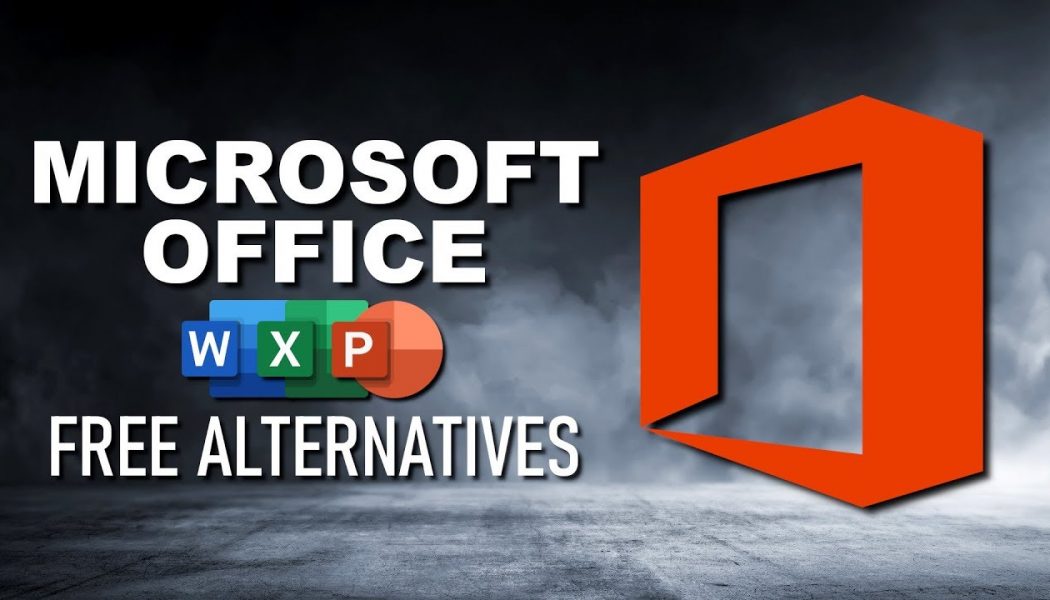While Microsoft Office is still the vastly popular and ubiquitous choice for word processing, slideshow presentations, spreadsheet calculations and a bounty of many more digital tasks, steep subscription costs can lead to some users turning instead to ad-riddled freeware or ‘free’ apps that lock most of their features behind hidden paywalls.
If this sounds like you, then fear not! There are many good and usable free alternatives to Microsoft Office. No subscription required.
According to How-To Geek, these are the 6 best free app suites for all your productivity needs:
1. LibreOffice
/* custom css */
.tdi_3_8ec.td-a-rec-img{ text-align: left; }.tdi_3_8ec.td-a-rec-img img{ margin: 0 auto 0 0; }
Like the best free software, LibreOffice is an open-source project from The Document Foundation. Originally a part of another office alternative – OpenOffice. You can download LibreOffice for free personal use on Windows, Mac, and Linux. Just keep in mind that, as an open-source application, LibreOffice does not provide its own support or assistance.
LibreOffice Writer, Calc, and Impress are the main offerings that correlate with Microsoft Word, Excel, and PowerPoint, respectively. These tools are also available online and largely intended for personal use, although businesses can engage them with proper support. LibreOffice also offers open-source applications for image editing (Draw), formulas (Math), and database management (Base).
2. Google Drive
One of the most popular and often-used alternatives to Microsoft Office. Stemming from one of Microsoft’s largest competitors, Google’s G-Suite of programs are completely free with popular user-friendly apps like Google Docs, Slides, Sheets, and Drawings are all available within.
All of the above apps use Google’s integrated cloud storage service, Google Drive. In addition to these primary G Suite apps, Google offers apps like Forms and Classroom that can cater to unique needs like those of teachers. Likewise offered is a huge number of third-party tools like Zoho, LucidChart, Slack, and more provide native integration with Google’s many apps.
Having your productivity suite based entirely on the cloud offers additional security, as it’s more difficult to lose track of your files. While businesses may need to pay Google a modest sum for enterprise-level support, Google’s productivity suite is a great free choice for any personal endeavour.
3. iWork
If you’re a Mac owner you may already be aware of this collection of apps formerly exclusive to iOS systems. However, Apple’s productivity suite, which includes iWork, features alternatives for the main Microsoft Office apps: Pages (Word), Numbers (Excel) and Keynote (Powerpoint).
These apps can now be accessed by anyone for free through iCloud, as well as on iPad and iPhone. If you’re most familiar with Microsoft Office, there might be a learning curve. However, frequent Mac users may find the interface to be more akin to other Apple apps. To get started, navigate any browser to the iCloud website and sign up for a free account.
While most free Microsoft Office alternatives try to emulate the Office experience, iWork will seem very different to anyone used to only working in Word.
4. WPS Office
Chinese developers Kingsoft offers a recently developed software that will be the most immediately reminiscent for Microsoft Office users. WPS stands for Writer, Presentation, Spreadsheets, which are the names of the suite’s primary offerings. The suite is entirely compatible with all of Microsoft’s programs, file types, and even some extensions.
You’ll encounter some ads when using WPS, but they rarely interfere with productivity. Its features secure cloud support with a 200 MB upload limit and 1 GB of free space, alongside accessible web apps and user-friendly PDF tools.
5. FreeOffice
FreeOffice from SoftMaker is exactly what its name suggests: a free Office alternative. Its layout will be immediately familiar to Microsoft Office users, especially with its ability to change between modern and classic layouts that will be useful to new users and veterans alike.
A huge bonus is that FreeOffice is already fully compatible with Microsoft Office files so your co-workers can send you documents without you having to worry if they will read or not.
SoftMaker offers TextMaker (Word), PlanMaker (Excel), and Presentations (PowerPoint), as well as a programming environment and scripting language for developers called BasicMaker. A premium version is also available with more features like file management and scripting support, for a one-time cost of $79.95 or a subscription service that starts at just $2.99/month.
6. Microsoft Office Online
If Microsoft Office is what you want, and none of the above platforms can scratch that itch, then consider trying Office Online.
Featuring basic versions of the same ubiquitous productivity apps, available for free, through any web browser. From any desktop or mobile device, you can sign up for a free Microsoft account and start using slightly limited versions of Word, Excel, and PowerPoint. You can get started by navigating any browser to Office.com and signing into or up for a free Microsoft account.
Edited by Luis Monzon
Follow Luis Monzon on Twitter
Follow IT News Africa on Twitter
/* custom css */
.tdi_4_e4b.td-a-rec-img{ text-align: left; }.tdi_4_e4b.td-a-rec-img img{ margin: 0 auto 0 0; }











